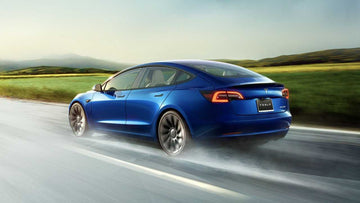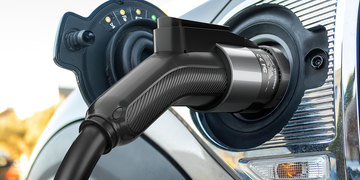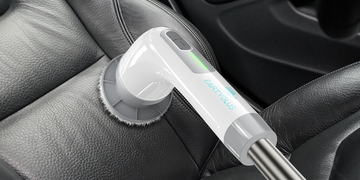Should I charge my EV charging to 100%? As electric vehicles (EVs) become an integral part of the automotive landscape, questions about the ideal charging practices for EV batteries arise. A common query among EV owners is whether it's advisable to charge their vehicles to 100%. In this article, we explore the considerations surrounding charging to full capacity and provide guidance on optimizing the health and performance of your EV battery.
The manufacturer's guidelines are paramount when it comes to charging practices. Refer to your EV's owner's manual for specific recommendations on charging limits and best practices.
Daily Use Range:
Most manufacturers suggest keeping the state of charge (SoC) within a moderate range for daily use, typically between 20% and 80% or 90%. Staying within this range helps promote battery longevity.
The Impact of Charging to 100%:
Charging an EV to 100% regularly can contribute to faster battery degradation over time. Lithium-ion batteries, commonly used in EVs, may experience increased stress and heat at full capacity.
Balancing Act:
The upper and lower extremes of battery capacity can be more taxing on the battery's chemistry. Charging to 100% and discharging to very low levels frequently can accelerate wear and tear.
Optimal Range for Daily Charging:
For day-to-day use, consider maintaining the battery SoC between 20% and 80% or 90%. This range balances the need for a sufficient driving range with the goal of preserving the battery's health.

Occasional 100% Charges:
While regular 100% charging is discouraged, occasional full charges may not significantly impact battery life. Some EVs even allow temporary 100% charging for specific situations, such as long trips.
Long-Term Storage Considerations:
If you plan to store your EV for an extended period, it's generally recommended to charge the battery to around 80%. This helps prevent the battery from being too low or too high during storage.
Fast Charging and Heat:
High-power or fast charging, particularly DC fast charging, can generate more heat. Whenever possible, use slower charging methods for day-to-day charging and reserve fast charging for when it's needed.
Other factors that can affect EV battery life
Charging limits and type may be the biggest factors people know of when it comes to EV battery longevity, but a few other variables may have an impact.
Extreme temperatures
While the effects of hot and cold temperatures on general battery performance are well documented, many drivers may be unaware that these variables can also impact longevity.
For instance, predictive modeling by the National Renewable Energy Laboratory estimates that today’s EV batteries will last between 12 to 15 years in moderate climates but only eight to 12 years in extreme climates. Vehicles with better thermal management systems may be able to offset this difference, but other cars require more attention to charging temperature to prevent faster degradation.
Frequently leaving too little charge
Maintaining sufficient charge in your battery can help protect the battery. This is the other side of the 80/20 rule: Avoid discharging the battery fully, as it relies on maintaining a charge to preserve battery capacity. Most manufacturers design their batteries so they will never fully discharge, but it’s still best to avoid coming close.
How often should I charge my EV to 100%
When it comes to charging your EV, it’s smart to exercise some caution so you can preserve your battery. Avoid frequent fast charging or charging when the battery is especially hot or cold. Relying on Level 2 chargers at home or at work and supplementing Level 3 fast charging only when needed can help to preserve battery life and performance, especially if you drive an older EV with less robust battery temperature management.
In general, though, the 80/20 rule is the best guideline for preserving long-term battery health. Keeping your battery level between 20% and 80% full most of the time will go a long way toward preventing degradation.
Use smart chargers like Telgeoot to manage your charging. Set charging limits to automatically stop at 80%, schedule charging time, or limit the process to times when energy is cleaner and cheaper. Whatever your needs, charging with Telgeoot gives you complete control.
Should I charge my EV charging to 100%? In the quest for optimal EV battery health, following manufacturer guidelines is key. While occasional 100% charges may not pose a significant threat, maintaining a balance by charging within a moderate range for daily use can contribute to a longer-lasting and more efficient battery. Stay informed, be mindful of your charging habits, and let your EV's manual be your ultimate guide to maximizing the potential of your electric vehicle.





